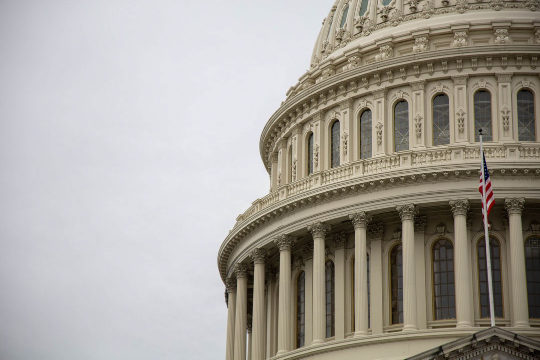 Download Full Comment
Download Full Comment
The IFRS Foundation is inviting public comments to clarify what role the Foundation can take to satiate the global need for sustainability reporting. Read our full comment below.
 Download Full Comment
Download Full Comment
The IFRS Foundation is inviting public comments to clarify what role the Foundation can take to satiate the global need for sustainability reporting. Read our full comment below.
To the IFRS Foundation:
FCLTGlobal is a 501(c)3 not-for-profit research organization that develops research and tools that encourage long-term business and investment decision-making across the global investment value chain. Focusing Capital on the Long Term began in 2013 as an initiative of CPP Investments and McKinsey & Company, which together with BlackRock, Dow, and Tata Sons founded FCLTGlobal in July 2016. In addition to our Founders, today our 50+ Member organizations span the investment value chain, including asset owners, asset managers and corporations, and are committed to accomplishing long-term tangible actions to lengthen the timeframe of capital allocation decisions.
The IFRS Foundation (Henceforth: the Foundation) is inviting public comments to clarify what role the Foundation can take to satiate the global need for sustainability reporting. The Consultation paper raises the question of creating a Sustainability Standards Board (SSB) by the IFRS that would
“develop a conceptual framework of its own to guide its work on consistent and comparable sustainability reporting.”
Based on FCLTGlobal’s review of existing academic evidence, our own analysis, and research informed by our multi-year conversations with our Members and other experts, we believe that the Foundation is in a unique position to contribute to sustainability reporting. To do so, we suggest the Foundation consider the following points:
Material sustainability reporting is vital to understanding a company’s long-term value creation story. As was demonstrated in work by Khan, Serafeim, and Yoon (2015)1 and by Grewal, Hauptmann, and Serafeim (2017)2, improvement on material sustainability metrics was linked to better company performance while disclosure of immaterial information was not informative. Despite this and other evidence, our research indicates that there is still a disconnect between what investors need to fully inform their investment decisions and what companies are disclosing today.3 In our piece ‘Measuring What Matters’ we prioritize corporate disclosure that is relevant to the long-term financial success of companies. While there are many interested parties, to be on a similar footing with traditional financial disclosures, sustainability disclosure must be material to both a company and to investment decision-makers.4
Many governments, development banks and non-government organizations (NGOs) have done extensive work on sustainability disclosure.5 The result has been that across the sustainability reporting field there exists a multitude of competing frameworks, with different definitions and metrics for measuring what is sustainable.6 However, the irony is that the increased output in the sustainability reporting space has actually served as a bottleneck.7 Companies faced with competing requests for disclosure have to make their own decisions about which frameworks to adopt or opt to selectively disclose across a number of different frameworks. This patchwork of selective disclosure leaves investors with an incomplete picture of a company’s sustainability performance and means companies are often devoting time and resources to compile reports without confidence that the disclosure will be deemed relevant by the intended audience. This situation could be solved with standards convergence.
What institutional investment decision-makers need is clear: quantitative, assurable, comparable disclosures around what really drives sustainable businesses in the long run. This is particularly important in the 21st century, globalized, economy, where investors hold companies across different industries and geographies.8 Consistent metrics allow for different members across the value chain to have conversations with one another using the same baseline of definitions and standards, which our research indicates is the most efficient way to drive long-term and sustainable growth.9
Progress towards convergence is being made, as we saw with the recent announcement of the International Integrated Reporting Council’s (IIRC) intent to merge with the Sustainability Accounting Standards Board (SASB).10 That announcement followed a statement of intent to work together towards comprehensive corporate reporting from the Climate Disclosure Project (CDP), Climate Disclosure Standards Board (CDSB), Global Reporting Initiative (GRI), IIRC, and SASB in September.11 We applaud these initial steps and encourage IFRS Foundation to take a leading role.
As the organization overseeing the International Accounting Standards Board (IASB), which sets accounting standards for most companies in the world, the IFRS Foundation is in a unique position to lead convergence of sustainability standards, with a specific eye toward ensuring corporate disclosure of metrics that are materially linked to a business’s sustainable long-term value creation and serve the information needs of investors.
FCLTGlobal is pleased with the IFRS Foundation’s interest in contributing to the convergence of the sustainability reporting space. We encourage the Foundation to take a leadership role and focus on sustainability metrics which will inherently be material to the investment community. We appreciate the opportunity to submit these remarks for consideration. Should anyone at the Foundation have questions about the research or our remarks, we would welcome the prospect of further discussion.
Most Sincerely,
Sarah Williamson, CAIA, CFA, Chief Executive Officer, FCLTGlobal
Ariel Babcock, CFA, Managing Director, Head of Research, FCLTGlobal
1 M. Khan, G. Serafeim, and A. Yoon, “Corporate Sustainability: First Evidence on Materiality,” Harvard Business Review, 24 March 2015, https://hbswk.hbs.edu/item/corporate-sustainability-first-evidence-on-materiality.
2 J. Grewal, C. Hauptmann, and G. Serafeim, “Material Sustainability Information and Stock Price Informativeness,” Journal of Business Ethics, last revised 20 Jan 2020, https://papers.ssrn.com/sol3/papers.cfm?abstract_id=2966144
3 FCLTGlobal, “Measuring What Matters,” 3 Jan 2020, https://www.fcltglobal.org/resource/measuring-metrics/
4 FCLTGlobal, “Investors and Companies Can Drive ESG Metrics Forward Together,” 22 July 2020, https://www.fcltglobal.org/resource/investors-and-companies-can-drive-esg-metrics-forward-together/
5 M. Bergman, B. Karp, R. Rosen, “ESG Disclosures: Frameworks and Standards Developed by Intergovernmental and Non-Governmental Organizations,” Harvard Law School Forum on Corporate Governance, 21 September 2020, https://corpgov.law.harvard.edu/2020/09/21/esg-disclosures-frameworks-and-standards-developed-by-intergovernmental-and-non-governmental-organizations/
6 H. Chen and T. Cheng, “Shades of Green: HOPF for Standardized Environmental Performance Indicators,” 12 November 2020, https://papers.ssrn.com/sol3/papers.cfm?abstract_id=3723208
7 J. D’Aquila, “The Current State of Sustainability Reporting,” The CPA Journal, July 2018, https://www.cpajournal.com/2018/07/30/the-current-state-of-sustainability-reporting/
8 FCLTGlobal, “Measuring What Matters,” 3 Jan 2020, https://www.fcltglobal.org/resource/measuring-metrics/
9 FCLTGlobal, “Predicting Long-term Success,” 29 September 2019, https://www.fcltglobal.org/resource/predicting-long-term-success-for-corporations-and-investors-worldwide/
10 SASB, “IIRC and SASB announce intent to merge in a major step towards simplifying the corporate reporting system,” PR Newswire, 20 Nov 2020, https://www.prnewswire.com/news-releases/iirc-and-sasb-announce-intent-to-merge-in-major-step-towards-simplifying-the-corporate-reporting-system-301180179.html
11 CDP et al., “Statement of Intent to Work Together Towards Comprehensive Corporate Reporting: Summary of alignment discussions among leading sustainability and integrated reporting organizations CDP, CDSB, GRI, IIRC, and SASB,” September 2020, https://29kjwb3armds2g3gi4lq2sx1-wpengine.netdna-ssl.com/wp-content/uploads/Statement-of-Intent-to-Work-Together-Towards-Comprehensive-Corporate-Reporting.pdf

Governance | Article
18 December 2020 - The U.S. Securities and Exchange Commission has proposed an amendment requiring Nasdaq listed companies to adopt rules intended to promote board diversity.

Risk and Resilience | Article
20 July 2020 - The US Department of Labor proposed new regulatory guideposts for fiduciaries in light of recent trends in ESG investing. Read FCLTGlobal's full comment letter.

Investor-Corporate Engagement | Article
23 September 2020 - The U.S. Securities and Exchange Commission has proposed a change in the reporting threshold for institutional investment managers. Read FCLTGlobal's full comment letter below, which asserts that there are alternative ways to modernize 13F reporting, and small investors and a transparent relationship with companies must not be forgotten.